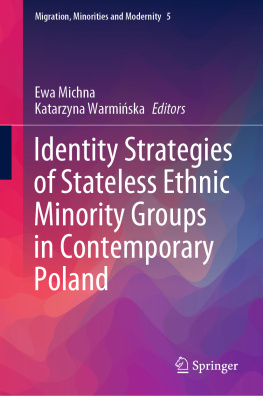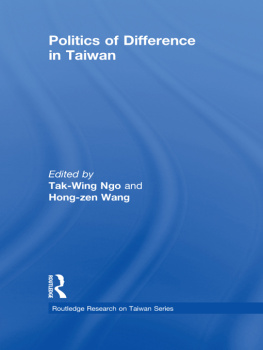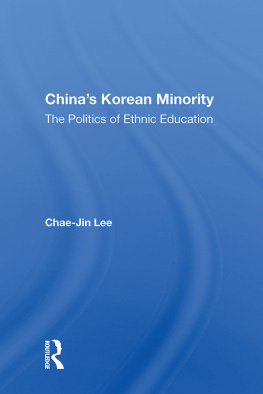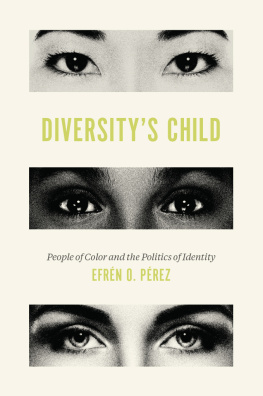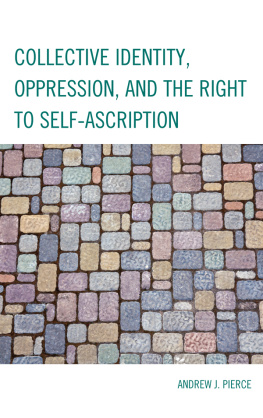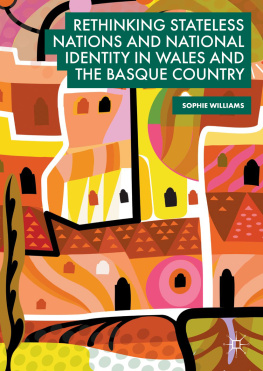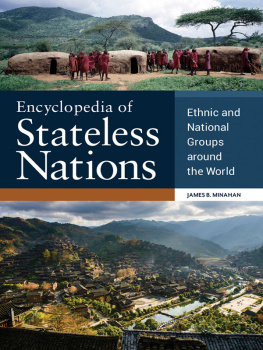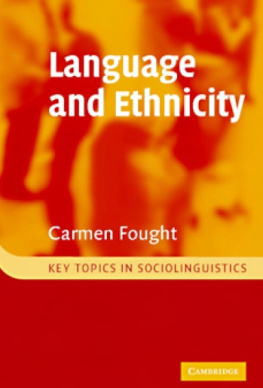Ewa Michna - Identity Strategies of Stateless Ethnic Minority Groups in Contemporary Poland
Here you can read online Ewa Michna - Identity Strategies of Stateless Ethnic Minority Groups in Contemporary Poland full text of the book (entire story) in english for free. Download pdf and epub, get meaning, cover and reviews about this ebook. year: 2020, publisher: Springer International Publishing, genre: Politics. Description of the work, (preface) as well as reviews are available. Best literature library LitArk.com created for fans of good reading and offers a wide selection of genres:
Romance novel
Science fiction
Adventure
Detective
Science
History
Home and family
Prose
Art
Politics
Computer
Non-fiction
Religion
Business
Children
Humor
Choose a favorite category and find really read worthwhile books. Enjoy immersion in the world of imagination, feel the emotions of the characters or learn something new for yourself, make an fascinating discovery.
- Book:Identity Strategies of Stateless Ethnic Minority Groups in Contemporary Poland
- Author:
- Publisher:Springer International Publishing
- Genre:
- Year:2020
- Rating:4 / 5
- Favourites:Add to favourites
- Your mark:
- 80
- 1
- 2
- 3
- 4
- 5
Identity Strategies of Stateless Ethnic Minority Groups in Contemporary Poland: summary, description and annotation
We offer to read an annotation, description, summary or preface (depends on what the author of the book "Identity Strategies of Stateless Ethnic Minority Groups in Contemporary Poland" wrote himself). If you haven't found the necessary information about the book — write in the comments, we will try to find it.
Ewa Michna: author's other books
Who wrote Identity Strategies of Stateless Ethnic Minority Groups in Contemporary Poland? Find out the surname, the name of the author of the book and a list of all author's works by series.
Identity Strategies of Stateless Ethnic Minority Groups in Contemporary Poland — read online for free the complete book (whole text) full work
Below is the text of the book, divided by pages. System saving the place of the last page read, allows you to conveniently read the book "Identity Strategies of Stateless Ethnic Minority Groups in Contemporary Poland" online for free, without having to search again every time where you left off. Put a bookmark, and you can go to the page where you finished reading at any time.
Font size:
Interval:
Bookmark:
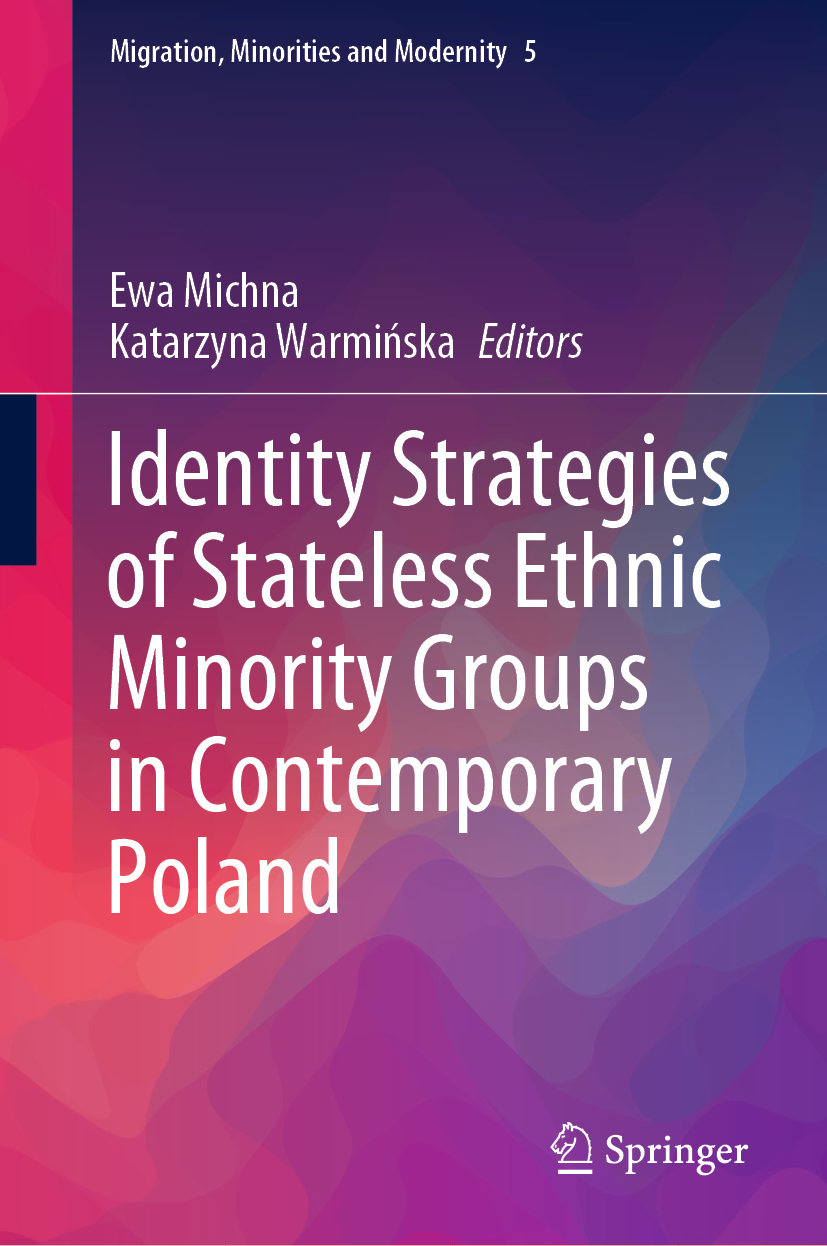
This series explores the often complex relationships between migration, society and democracy. With a focus on local and regional aspects, the studies presented in this series discuss migration itself, including questions related to forced migration and resettlement, and offer new insights on the connections between established groups and newcomers in modern societies, especially with regard to their potential impact on social and democratic development. The scope of the series encompasses distinct fields such as migration/minorities and democracy, migration/minorities and law, migration/ minorities and social organisation, migration/minorities and education, migration/minorities and the labour market, migration/minorities and high-tech capitalism, migration/minorities and racism, in addition to the intersections of these distinct fields with each other, for example: migration/minorities, citizenship, law, and democracy. This series adopts an international and interdisciplinary approach to seek better understandings of the complexity of migration/minorities and reveal the fruitful outcomes of migration/minorities as well as examine more interwoven and problematic issues of migration/minorities, societies and democracies.
More information about this series at http://www.springer.com/series/13092

This Springer imprint is published by the registered company Springer Nature Switzerland AG
The registered company address is: Gewerbestrasse 11, 6330 Cham, Switzerland
For many decades, questions of ethnicity and ethnic diversity in modern societies have been of great interest not only to researchers, but also to social practitioners, politicians, activists of local and international organizations, as well as members of various ethnic communities themselves.
The contemporary European face of ethnicity can be seen from the perspectives of old and new diversities. The old diversities are associated with long-existing national, ethnic, regional and religious groups, those in the majority but also especially those of a minority character. The new variations are mainly associated with the appearance of people or groups mostly of migrant origin.
According to Roberta Medda-Windischer (2019, 2015), the terms historical, traditional and autochthonous minoritiesthe so-called old minoritiescan refer to groups that are linguistically, culturally or religiously different from other members of a given society, and that have acquired minority status for historical reasons (e.g. changes to state borders) or political ones (e.g. they have not achieved the status of a nation-state).
However, the term new minorities may also refer to communities formed by individuals or families who left their homeland, emigrating to other countries mainly for economic and political reasons. These are immigrants, refugees and their descendants living in the country on a more than temporary basis (Medda-Windischer 2015: 34; 2009).
In making this distinction, it should be emphasized that, as Michael Walzer writes, old minorities cannot be said to be in a minority position by choice, because they usually are involuntary settlers, residing in their historical homelands, but which have been incorporated into other states. Of new minorities and immigrants, we can say that they have made a choice to find a new place to live and to join another society (Walzer 1995).
In each of these two categories, researchers in the field point to a range of problems, including the legal, social and economic situation of these groups, the dynamics of intercultural relations, the extent of equality or discrimination, and to the approaches taken to including new minorities in the host society, which include the exclusionist model, the assimilationist model, and the pluralist model (Medda-Windischer 2105). The type of nationalism that exists in a given country is also important (civic, ethnic) because, according to Will Kymlicka and Magda Opalski, it influences the form of ethnic relations that prevail there (Kymlicka and Opalski 2002).
It should be also noted that some issues are hot, such as the current migration crisis in Europe (from 2015), while others seem to oscillate around old/permanent problems related to relations between the minority group and the dominant group. However, sometimes old matters gain significance again, as in recent years, when old nationalisms are being revived on waves of populism, directing nationalist sentiments against new and old minorities (Sytuacja 2016; Cudzoziemcy 2018; Jaskuowski 2019).
Not all European countries are places where new minorities appear, or where the number of old ones is significant. Poland is located on the sidelines of migration routes and is only reluctantly chosen by migrants as a place of settlement, partly because the states attitude towards them is not favourable. Apart from Ukrainians, who are mainly temporary and economic migrants, in the last few years, the influx of newcomers to Poland has not been great, and the percentage of new minorities is still insignificant.
Migrants treat Poland as a transit country, preferring to go to other western European states that offer them better-living conditions (Sytuacja 2016). When the recent migration crisis arose and the EU policy of reallocation of newcomers was created, Polish political discourse concerning this issue became significant. On the Polish political and public stage, different voices are audible, those against the entry of migrants (refugees), and those who accept proposed EU solutions to the question. There are many contradictions as well as antagonisms in these narratives, which cause social division, especially in relation to attitudes towards the so-called immigrant case (Kortas 2016). In the past three years, popular perceptions of this problem have become more negative, which is partly the result of the governing right-wing partys policies, which propagate anti-immigration rhetoric (CBOS 2017).
Font size:
Interval:
Bookmark:
Similar books «Identity Strategies of Stateless Ethnic Minority Groups in Contemporary Poland»
Look at similar books to Identity Strategies of Stateless Ethnic Minority Groups in Contemporary Poland. We have selected literature similar in name and meaning in the hope of providing readers with more options to find new, interesting, not yet read works.
Discussion, reviews of the book Identity Strategies of Stateless Ethnic Minority Groups in Contemporary Poland and just readers' own opinions. Leave your comments, write what you think about the work, its meaning or the main characters. Specify what exactly you liked and what you didn't like, and why you think so.

